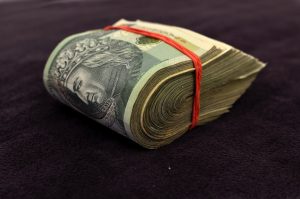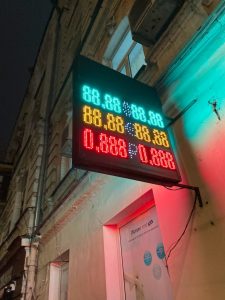Forex, or foreign exchange, is the world’s largest financial market, with a daily trading volume of over $5 trillion. Forex trading is the process of buying and selling currencies with the aim of making a profit. In this article, we’ll explore how forex is traded, including the different types of trades, order types, and the role of brokers.
The Basics of Forex Trading
Forex trading involves the exchange of one currency for another. For example, if you’re trading EUR/USD, you’re buying euros and selling dollars. The price of the currency pair is determined by the supply and demand for each currency. If there is more demand for euros than dollars, the price of EUR/USD will rise. If there is more demand for dollars than euros, the price of EUR/USD will fall.
There are two main types of forex trades: spot trades and forward trades. A spot trade is a trade in which the currencies are exchanged immediately. In other words, the trade is settled “on the spot.” A forward trade, on the other hand, is a trade in which the currencies are exchanged at a future date. Forward trades are used to hedge against currency risk or to speculate on future exchange rate movements.
Order Types in Forex Trading
When trading forex, there are several different order types that traders can use to enter and exit trades. The most common order types are:
Market orders: A market order is an order to buy or sell a currency pair at the current market price. When you place a market order, your trade will be executed immediately at the best available price.
Limit orders: A limit order is an order to buy or sell a currency pair at a specific price or better. When you place a limit order, your trade will only be executed if the market reaches the specified price.
Stop orders: A stop order is an order to buy or sell a currency pair at a specific price or worse. When you place a stop order, your trade will only be executed if the market reaches the specified price.
The Role of Forex Brokers
Forex brokers are companies that provide traders with access to the forex market. They act as intermediaries between traders and the market, executing trades on behalf of their clients. Forex brokers earn money by charging a commission on each trade, or by marking up the spread (the difference between the bid and ask price).
When choosing a forex broker, it’s important to consider factors such as regulation, fees, trading platform, customer support, and the range of trading instruments offered. It’s also important to choose a broker that you feel comfortable with and that meets your individual trading needs.
Conclusion
Forex trading is a complex and dynamic market that requires a solid understanding of the fundamentals and technical analysis. By understanding the different types of trades, order types, and the role of brokers, traders can make informed decisions and maximize their profits. While forex trading can be highly profitable, it’s important to remember that it also carries a high level of risk, and traders should always use proper risk management techniques.





